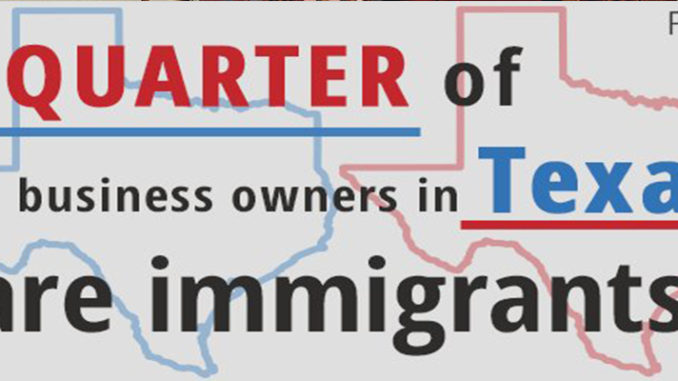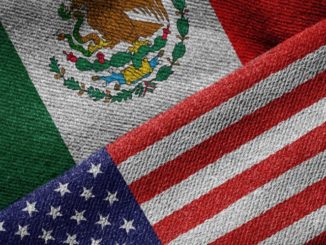
by Jordan Bruneau
A new report released last month by the Kauffman Foundation reveals that U.S. entrepreneurship reached its highest level in more than two decades in 2017. People are choosing to create businesses that are employing Americans and surviving past their first anniversary more than at any point in recent history.
This is welcome news because entrepreneurs play a paramount role in society and the economy. Entrepreneurs are modern day alchemists. They create value, higher living standards, and jobs out of nothing.
Who does the report indicate is driving this entrepreneurship surge? Immigrants.
The report reveals that immigrants start twice as many businesses per capita as their native-born counterparts. Immigrants now make up nearly one-third of all U.S. entrepreneurs – more than double their share from two decades ago. In contrast, the entrepreneurship rate of the native-born has remained flat.
According to the Center for American Entrepreneurship, nearly half of Fortune 500 companies were founded by American immigrants or their children. That number increases to 57 percent for the biggest 35 companies. Immigrants have also founded more than half of America’s private start-ups valued at $1 billion dollars or more, according to the National Foundation for American Policy.
Given entrepreneurs’ vital role in the economy and immigrants’ vital role in entrepreneurship, it is possible to say that immigrants are driving today’s booming economy. The national unemployment rate is currently hovering near a 50 year low, and wages are growing at their fastest pace in a decade.
Yet rather than recognize the vital role immigrants play in fueling this economic fire, the Trump Administration is waging a multi-front attack against them.
Exhibit A is Trump’s torpedoing of the nascent yet promising Startup Visa, an Obama Administration rule to allow immigrants to bring their vision to life – and create the jobs that come with it – in the U.S. The rule was supposed to take effect in the summer of 2017, but the Trump Administration delayed it and has said it’s working to scrap it altogether. The Kauffman Foundation estimates the Startup Visa’s legislative counterpart would create about one million new jobs in the country over 10 years.
The Trump Administration has also attacked the H-1B skilled worker visa, which serves as a pipeline to immigrant entrepreneurship. Immigration attorneys and employers tell the Associated Press that they’ve seen “unprecedented disruptions in the approval process since Trump took office in 2017.” H-1B denials have increased significantly, and the Trump Administration is poised to also revoke work permits for H-1B spouses, reducing opportunities for another group of potential immigrant entrepreneurs.
Immigrants are entrepreneurial at all skill levels, whether their company name appears on an app or the side of a truck, so Trump’s general immigration animosity arguably threatens U.S. entrepreneurship the most. For instance, Trump has supported fringe legislation to cut legal immigration levels in half, called for the elimination of birthright citizenship, and ended legal protections for Dreamers.
Like his Democratic counterparts who seemingly think that every dollar earned by the rich is one taken from the poor, the Trump Administration seems to believe every job done by an immigrant is one less available for Americans. In reality, neither wealth nor labor is a fixed pie to be divvied up by the government. Rather they both expand through free markets and contract through government control.
To protect and build on the country’s entrepreneurial gains – as well as the associated wage, living standard, and employment increases – Trump must recognize that immigrants are assets, not liabilities. While immigrant entrepreneurs cannot turn metal into gold, they do the economic equivalent.
Jordan Bruneau is a senior policy analyst at the Becoming American Initiative.



